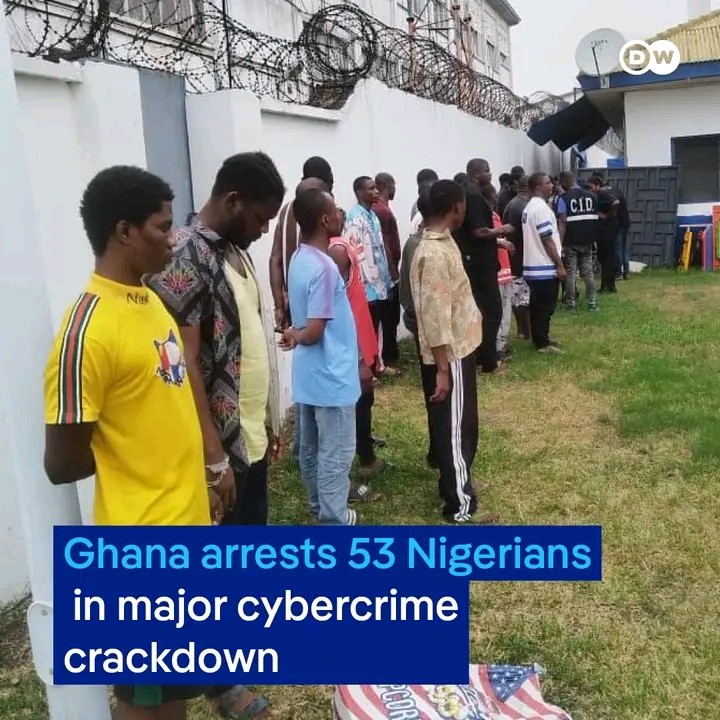FBI Extradites Abiola Kayode From Ghana To US Over Alleged $6m Cyber Fraud Charge

The Federal Bureau of Investigation (FBI) has successfully extradited Abiola Kayode, a Nigerian national, from Ghana to the United States, where he faces serious charges related to a $6 million cyber fraud scheme. Kayode is accused of being involved in a sophisticated cybercrime operation that defrauded individuals and businesses in the U.S. through various online scams and fraudulent activities.
The extradition of Kayode, who was apprehended in Ghana, marks a significant achievement for international law enforcement cooperation between the U.S., Ghana, and Nigeria. The FBI, in partnership with Ghanaian authorities, worked to ensure that Kayode was apprehended and brought to the U.S. to face justice. This operation is part of a broader effort to tackle global cybercrime, particularly the increasing number of internet fraud cases that affect individuals and corporations across the globe.
Kayode, whose criminal activities have reportedly spanned several years, is accused of playing a pivotal role in a large-scale cyber fraud scheme that targeted both individuals and businesses in the U.S. The fraud, estimated to have defrauded victims of over $6 million, involved various types of cybercrimes, including wire fraud, identity theft, and email phishing scams. Through these fraudulent activities, Kayode and his co-conspirators allegedly deceived victims into transferring large sums of money, often by impersonating legitimate companies or government agencies, and using sophisticated technology to cover their tracks.
The U.S. authorities allege that Kayode and his associates used advanced techniques such as spoofed emails and fake websites to carry out their fraudulent schemes, often targeting vulnerable individuals and small businesses. The scam had a significant financial impact, with victims losing millions of dollars before the cybercriminals were identified and tracked down by international law enforcement agencies.
The extradition of Kayode from Ghana follows an intensive investigation by the FBI, which used a combination of cyber forensics and international collaboration to trace the origins of the fraudulent activities. The operation was made possible through coordinated efforts between the U.S. Department of Justice, the FBI, and law enforcement agencies in Ghana and Nigeria. The FBI’s role in the investigation underscores its commitment to combating transnational cybercrime and bringing perpetrators to justice, regardless of where they are located.
In response to his extradition, Kayode faces charges in the U.S. District Court, where he is expected to stand trial for his alleged role in the cyber fraud scheme. The charges against him include wire fraud, money laundering, and conspiracy to commit fraud. If convicted, Kayode could face significant prison time, as well as the potential for restitution to the victims of his fraudulent activities.
The case has garnered attention not only due to the scale of the fraud but also because of the growing prevalence of cybercrime in the global digital economy. In recent years, cybercriminals have become increasingly sophisticated, using new technologies to carry out fraudulent schemes that span borders and involve multiple jurisdictions. The U.S. government has ramped up efforts to combat cybercrime, with the FBI dedicating resources to investigating and prosecuting individuals involved in online fraud and other cybercrimes.
Kayode’s extradition is seen as a positive development in the fight against cybercrime, but it also highlights the challenges faced by law enforcement agencies in addressing online fraud. As the internet continues to be a key tool for conducting business and personal transactions, the risks of cybercrime continue to grow. Fraudulent schemes like the one Kayode is accused of engaging in not only cause significant financial loss but also erode trust in digital platforms and financial systems.
The case has raised questions about the effectiveness of international cooperation in addressing cybercrime and other forms of transnational criminal activity. Experts have long argued that cybercrime requires a coordinated response from governments, law enforcement agencies, and private sector entities, as it often transcends national borders and involves complex criminal networks. The Kayode case exemplifies the need for robust international partnerships to tackle the growing threat of cybercrime.
For Nigeria, the extradition is significant as it underscores the country’s commitment to cooperating with international law enforcement agencies in the fight against cybercrime. While Nigeria has been a source of many high-profile cybercrime cases in recent years, the Nigerian government has taken steps to improve its cybersecurity framework and strengthen its collaboration with international agencies. The extradition of Kayode demonstrates that Nigerian authorities are willing to cooperate with global law enforcement to ensure that criminals are brought to justice, regardless of their location.
In conclusion, the FBI’s successful extradition of Abiola Kayode from Ghana to the U.S. represents a major step forward in the fight against international cybercrime. With the rising tide of digital fraud, the collaboration between the U.S., Ghana, Nigeria, and other countries is critical in bringing cybercriminals to justice and ensuring the safety and security of online platforms. As the case progresses, it will likely serve as a reminder of the need for continued vigilance and cooperation in the global effort to combat cybercrime and protect individuals and businesses from the growing threat of online fraud.





Responses